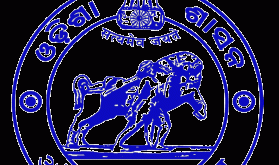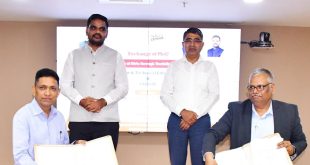New Delhi: Union Cabinet approved the Signing and Ratification of the Protocol amending the Agreement between India and Sri Lanka for the avoidance of double taxation and the prevention of fiscal evasion with respect to taxes on income.
Updation of preamble text and inclusion of Principal Purpose Test, a general anti abuse provision in the Double Taxation Avoidance Agreement (DTAA) will result in curbing of tax planning strategies which exploit gaps and mismatches in tax rules.
The existing DTAA between India and Sri Lanka was signed on 22nd January, 2013 and entered into force on 22nd October, 2013.
India and Sri Lanka are members of the Inclusive Framework and as such are required to implement the minimum standards under G-20 OECD BEPS Action Reports in respect of their DTAAs with Inclusive Framework countries.
Minimum standards under BEPS Action 6 can be met through the Multilateral Convention to Implement Tax Treaty Related Measures to Prevent Base Erosion and Profit Shifting (MLI) or through agreement bilaterally.
India is a signatory to the MLI. However, Sri Lanka is not a signatory to the MLI as of now.
Therefore, amendment of the India-Sri Lanka DTAA bilaterally is required to update the Preamble and also to insert Principal Purpose Test (PPT) provisions to meet the minimum standards on treaty abuse under Action 6 of G-20 OECD Base Erosion & Profit Shifting (BEPS) Project.
Background:
The existing Double Taxation Avoidance Agreement (DTAA) between India and Sri Lanka was signed on 22nd January, 2013 and entered into force on 22nd October, 2013.
India and Sri Lanka are members of the Inclusive Framework and as such are required to implement the minimum standards under G-20 OECD BEPS Action Reports in respect of their DTAAs with Inclusive Framework countries.
Minimum standards under BEPS Action 6 can be met through the
Multilateral Convention to Implement Tax Treaty Related Measures to Prevent
Base Erosion and Profit Shifting (MLI) or through agreement bilaterally. India
is a signatory to the MLI.
 Update Odisha-Latest Odisha News I Breaking News Get latest news on Odisha, Govt. Jobs, OSSC, OPSC, Entertainment, Crime, Sports, and Education
Update Odisha-Latest Odisha News I Breaking News Get latest news on Odisha, Govt. Jobs, OSSC, OPSC, Entertainment, Crime, Sports, and Education


